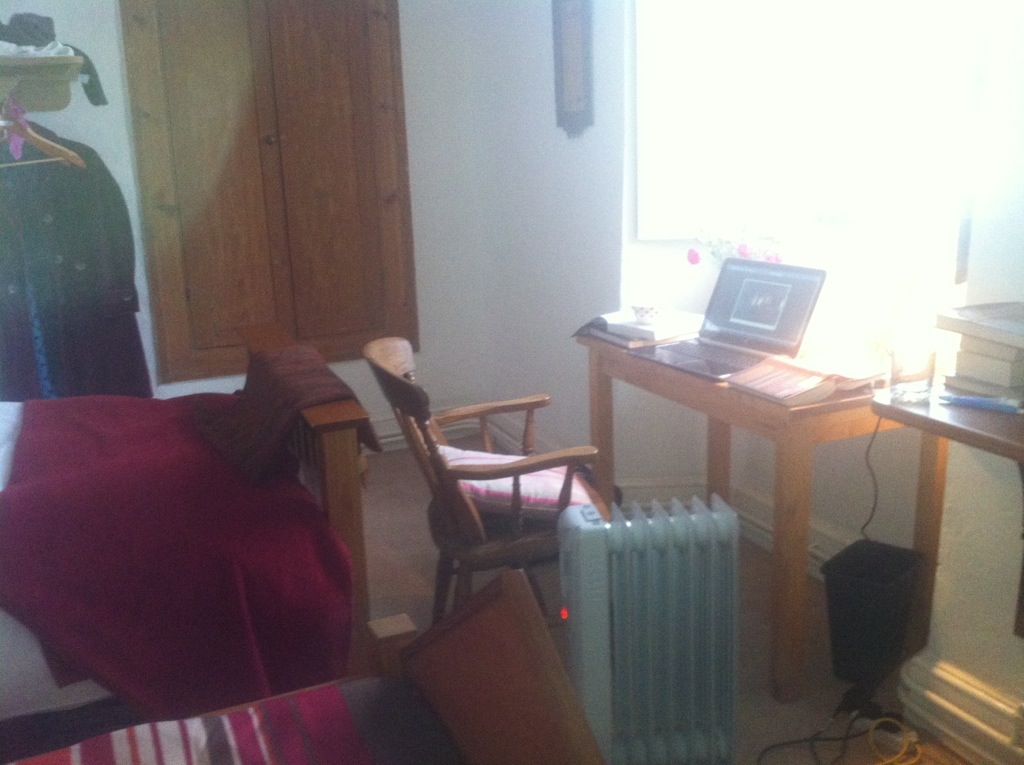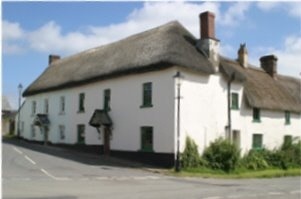I had been longing to go to Retreats for You for at least a year, ever since I heard about it via Clare Mackintosh and Emma Darwin‘s blogs. For the last nine months I’ve been collecting together research materials and reading around various topics for Book No 2. Writing the latest will be a very different proposition from No 1 which was pretty much complete by the time I got an agent and a publisher, and had been gestating over eight years. Then I had no time pressures; now I do, plus less spare time on top of the day job due to all the talks and teaching I have taken on since No 1 (which I love doing, but it does eat away at writing time).
What better way then, I thought, to kick off the writing phase for No 2 which will last 18 months, than to go to a special, magical, place where (it was said) writers performed great feats of word production? So last Saturday, dodging floods and fallen trees on my way, I headed down to Devon with a crate of reference books and my new laptop ready to dig in. And when I returned on Wednesday afternoon, I was at least 7,000 words better off. I had written one and a half chapters, making me six weeks ahead of my schedule and incredibly motivated to continue. I’d also managed to wrangle four different bibliographies and lists of manuscript references into a single manageable document for the first time since I’d begun. This makes me feel marvellously in control of where I’m heading.

Retreats for You, run by Deborah Dooley with her partner Bob Cooper, does seem miraculous. Everyone will have their own experience of it, but here is what worked for me. Deb is firm that writers are ‘looked after’ while they are there. No plate-clearing, washing up or bedmaking is allowed, or anything else which ends up distracting you when at home. She whizzes round while you are eating breakfast to make sure there is nothing needing a bit of displacement tidying when you return to your room. My room was airy and comfortable with a strong wifi (which I really needed, in order to check online sources all the time). The view from my desk over the village square at Sheepwash was charming. The writing day was punctuated by yummy meals and help-yourself snacks from the tins in the kitchen. At six o’ clock a large glass of wine was brought up to my room, to fortify me in the hour before dinner.
As a result of this combination of deliciously relaxed isolation from everyday life, with a steely backbone of regular refreshments to give some structure, I ended up writing for at least four two-hour stretches each day, sometimes more. Writing isn’t compulsory though. People go to relax, think, read or paint. Deb makes it clear that it’s your time to do with as you wish, and if you want to accompany her on her bodyboarding trips to Bude (she is super-fit as well as being a great cook and a prolific journalist) then you’re more than welcome. Or you can sit by the huge inglenook fireplace reading all afternoon, as I did on Tuesday. Other writers who were there when I was went swimming, or took country walks, and it was fun catching up with them at mealtimes: finding out what they were working on, how they’d come to writing in the first place, and what their dreams for the future were. You could be as sociable or as private as you wanted. Nothing was compulsory, other than being looked after.
What a treat.

